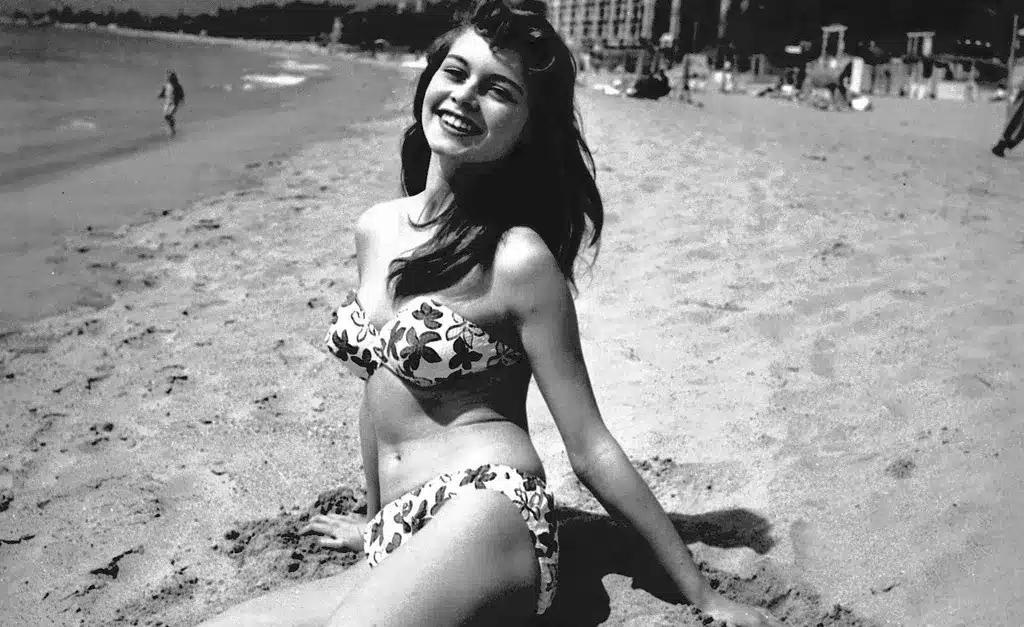Almost 80 years ago, in 1946, fashion was marked by a revolution that was as sulphurous as it was controversial: the creation of the bikini, a two-piece swimming costume consisting of a bra and panties. A look back at the explosive history of this beachwear symbol of women’s emancipation.
While women in Ancient Greece and Roman times wore two-pieces for sporting purposes, their time on the beach was very different. For centuries, and particularly during the Victorian era when seaside resorts became more and more popular, covering outfits were the order of the day, from long dresses to bloomers. In the 19th century, both men and women wore the same coveralls. Disclosing body parts was still unthinkable, even if swimming costumes were less restrictive in terms of the volume of fabric. In 1907, Australian swimmer Annette Kellerman was even arrested and tried for indecency in Boston for wearing a tight-fitting swimming costume that covered her from neck to toe.
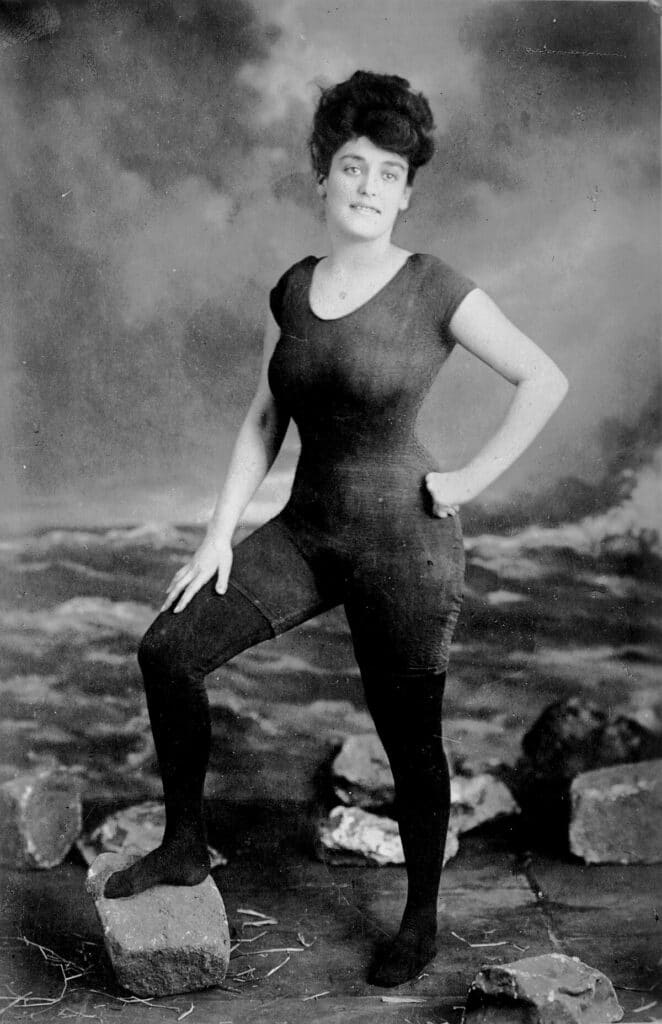
First designs, then the famous bikini
In 1913, designer Carl Jantzen launched a two-piece made up of shorts and a close-fitting top. A few years later, mores continued to evolve and women’s fashion continued to reinvent itself, becoming more emancipatory and functional. Even though the morality police still ensured that the decorum of the time was respected, in the 1930s women began to bare more, exposing their backs and stomachs. Hollywood celebrities such as Lana Turner, Ava Gardner and Rita Hayworth appeared in lighter swimming costumes and two-pieces, which were sure to cause a stir.
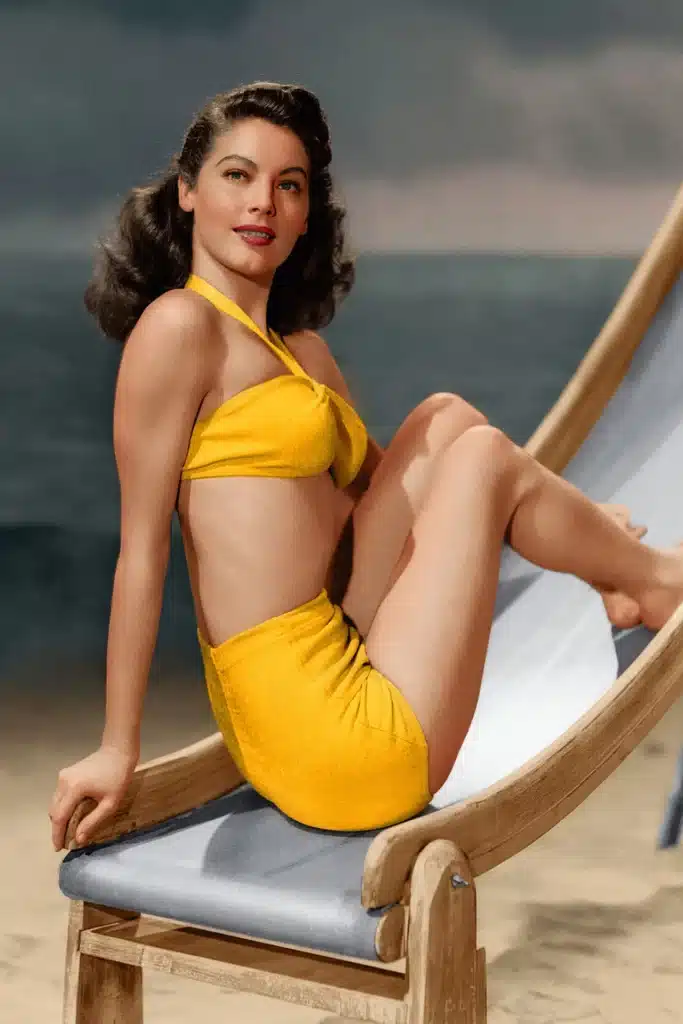
In 1932, Parisian couturier Jacques Heim unveiled the Atome two-piece swimming costume, which still concealed the navel. Designer Louis Réard, who worked in his mother’s lingerie boutique in Paris, noticed that women were dropping their swimming costumes to get a better tan. So he invented the Bikini, made up of a bandeau for the top and two inverted triangles for the bottom, sewn together. This time, the belly button was clearly visible.
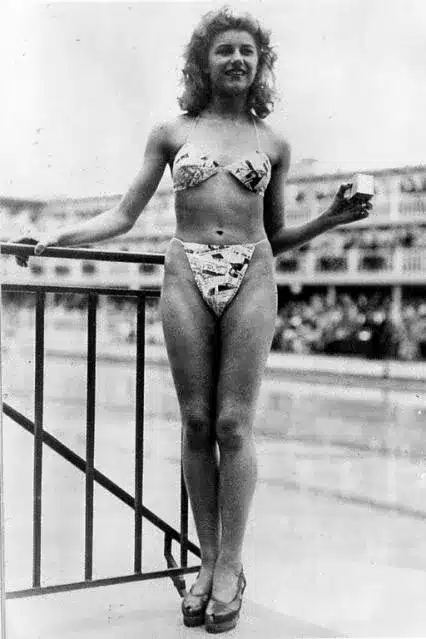
Louis Réard presented his swimming costume for the first time on 5 July 1946 at the Molitor swimming pool, in a photo shoot featuring the Casino de Paris nude dancer Micheline Bernardini. The Bikini took its name from the nuclear test that had taken place a few days earlier on the Bikini atoll in the Marshall Islands (Micronesia, Oceania). The designer filed a patent to protect his creation, described as ‘smaller than the smallest swimming costume in the world’.
Difficult acceptance
Although the swimming costume advocates a certain freedom for women, the two-piece is not universally accepted. Quite the contrary, in fact. Many of its detractors criticise its ‘vulgarity’ and lack of modesty. Several beaches even ban its wearing.
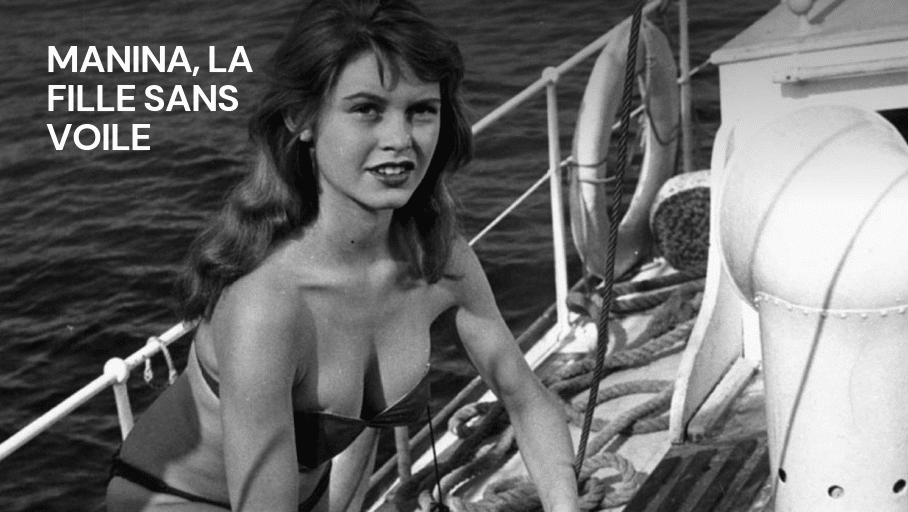
Brigitte Bardot was one of the first film stars to feature it, in ‘Manina, la fille sans voiles’ in 1952 and ‘Et Dieu… créa la femme’ four years later. She was also photographed in a bikini on the Carlton beach during the Cannes Film Festival. Other actresses helped to democratise the bikini, including Ursula Andress in ‘James Bond 007 versus Dr No’ in 1962, Raquel Welch in ‘A million years before Christ’ in 1966 and Romy Schneider in ‘La Piscine’ in 1969.
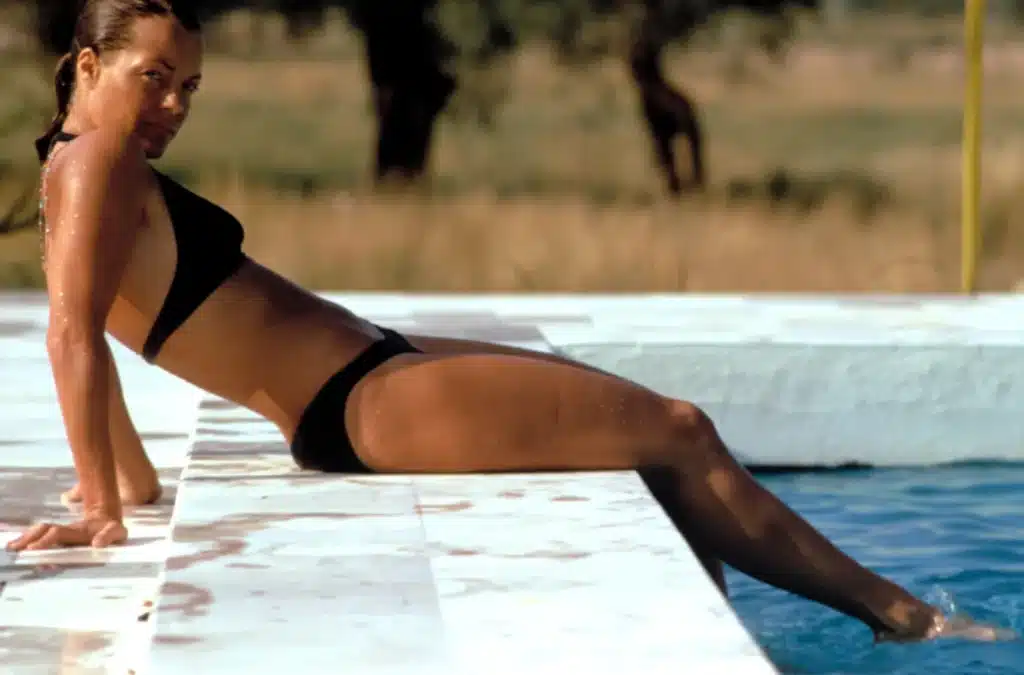
Dalida, Jeanne Moreau, Jane Birkin, Mireille Darc, Jayne Mansfield, Bettie Page, Nancy Sinatra and Marilyn Monroe were also photographed in bikinis in the same years.
In the 70s and 80s, bikinis gained in popularity, seen on the biggest icons of their generation and boosted by the sexual revolution of the sixties and seventies. New, more water-resistant materials were used, styles multiplied and the highest echelons of fashion revisited the couture version of the swimming costume, particularly from the 90s onwards, from Chanel to Saint Laurent to Jacquemus.
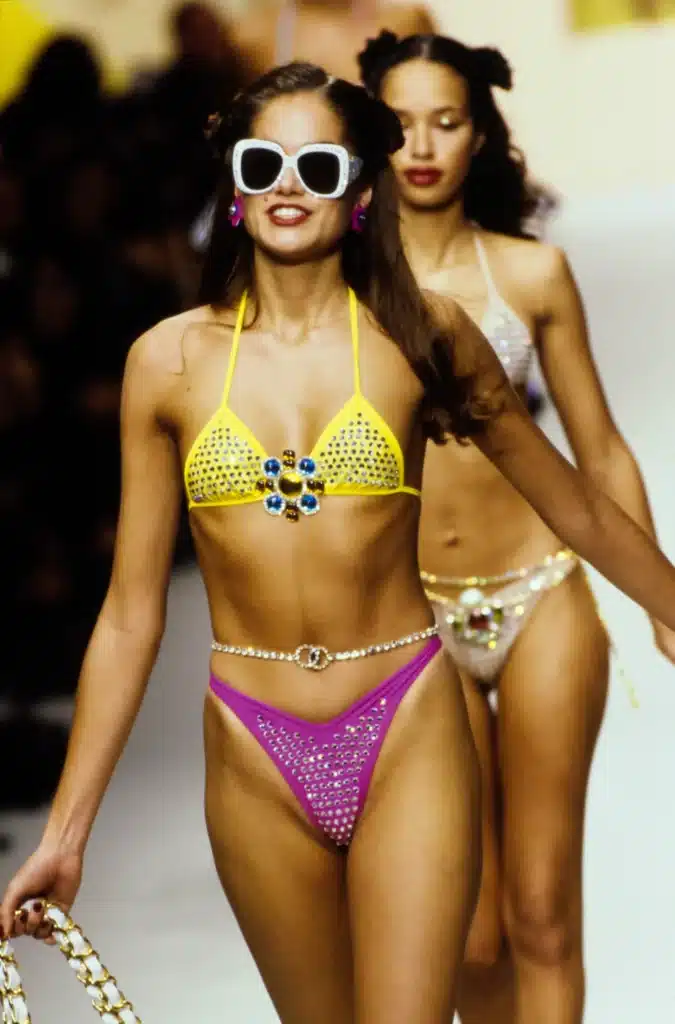
Banned, provocative, a source of discord, a symbol of women’s emancipation, an emblem of freedom and a certain sensuality… The bikini has left its mark not just on fashion, but on society as a whole. Its history continues to make its way (on the sand, of course) onto the world’s most beautiful beaches, but even today it is still sometimes at the heart of debate.
Read also > A brief history of… Spritz: summer’s trendiest orange cocktail
Featured photo: Birgitte Bardot in a bikini on the beach in 1953 © Sipa Press/REX/Shutterstock




